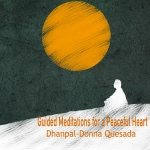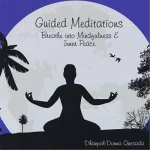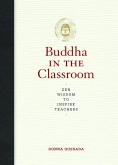I was considering some of the common patterns between parents and adult children recently, especially those that guide the relationship between mother-daughter and father-son. There is no shortage of books and articles about the difficulties and struggles that define these relationships and no fewer numbers of ideas and solutions. “Power struggle” was a term that came up the most. Fear was another. Resentment, control, manipulation, are others. Even jealousy, on the part of the parent. Fine, but my suspicion and eastern orientation pointed in one direction: ego. Behind it all is the unwitting and unconscious culprit of everything. Behind door number one, door number two, and all the other doors, is the same contestant in all its many, clever guises. Here, I distilled my own feelings, along with input from the best of my findings into three parts:
Parents: Let Go of Role.
As parents, we are so wholly identified by our children’s needs for so many years, that it becomes not only difficult, but odd, to relinquish that identification, when our children grow up. Although never signed, nor broken, we have an invisible contract with our children. But the conditions change. It is the last part—the part about it never being broken—that trips many parents up. This is where fear comes in. Parents are in the grip of a responsibility that can seem overwhelming, at times. I’ve heard this sort of thing: “but I can never give up on my child,” or, “the job of being a parent never stops.” And these ideas (seemingly reasonable) and sense of responsibility prevents a graceful transition to a newly defined relationship. (True, if the adult child was in danger, it may be appropriate to intervene, but when anyone is in danger, that’s when we break the rules by overriding common etiquette.)
As a parent, the general idea that you know what’s best, along with the criticism and displays of disappointment that go along with this idea, comes from what Eckhart Tolle calls an unconscious attachment to the role of parent. And this is, of course, the ego’s way of exerting control over the grown child’s life.
Tolle explains that awareness is the instrument for transforming this tendency. I would also emphasize the role of trust. Because fear is always lurking around underneath everything, like dust under the furniture, the willingness to plunge into the unknown with the spirit of trust—a most quiet and courageous companion!—immediately unknots that fear. And without the fear, which guides the habit of criticizing and controlling, you can forge a healthier relationship. It’s the gift of letting go. And by the way, humor doesn’t hurt, either. None of it is as serious as we think!
Adult children: Don’t Blame.
Not only will open blame cause your parents’ defense mechanisms to rise up, thus creating more friction and anger between you, but it won’t undo the momentum of long ingrained patterns and attachments on your parents’ part. And internal blame will only perpetuate resentment inside you.
When your heart is full of anger and bitterness, it can’t see beyond its own blackness nor can anything else find its way in. It’s as if the heart would have barricades around it, preventing it from seeing anything but what it already sees. The recognition that the apparent controlling, the unreasonable manipulation and the needless council, all have their roots in your parents’ love for you, nonplusses the anger—the ego’s greatest clutch. And at that moment, your heart empties so that it can then receive. You see differently and you feel differently. It is an act of letting go of what you heretofore thought was malicious.
Parents and Children: Forgive.
Parents need to forgive their children for not being who they expected them to be and forgive themselves for the unrealistic expectation. We all are a product of an infinite number of conditions—genetic information going back several generations (seven, according to Yogic science), our past life conditioning (again, according to Yogic science), our environment, including all the movies we’ve seen, the TV we’ve watched, the games we’ve played, the schools we went to, our friends and our enemies, even the food we ate. And even within one family, parents are often astounded when their two children are nothing alike. Our influence, as parents, isn’t what we think it is! Yet, ego would have us assert ourselves by way of those unrealistic expectations.
So, parents, it is an act of self-love and true forgiveness, to let go of the expectations. Find, instead, the beauty in who they are, authentically. It is a gift to them, as well as to yourself. And forgive yourself for your mistakes, for you did what you knew how to do, based on the resources you had at the time, as well as who you were and what you were capable of at the time.
Children, likewise will benefit from forgiving their parents for the same mistakes and for the same reasons. After all, to for-give is to give-forth, meaning that, in order to go forward, and allow for a new relationship—one founded on trust and authenticity, we have to embrace what was with true acceptance. This is also what it means to open the heart. All of the resentment empties out to make room for more positive and nourishing feelings.
*Again, guiding this article is my interest in adult children and their parental relationships.









